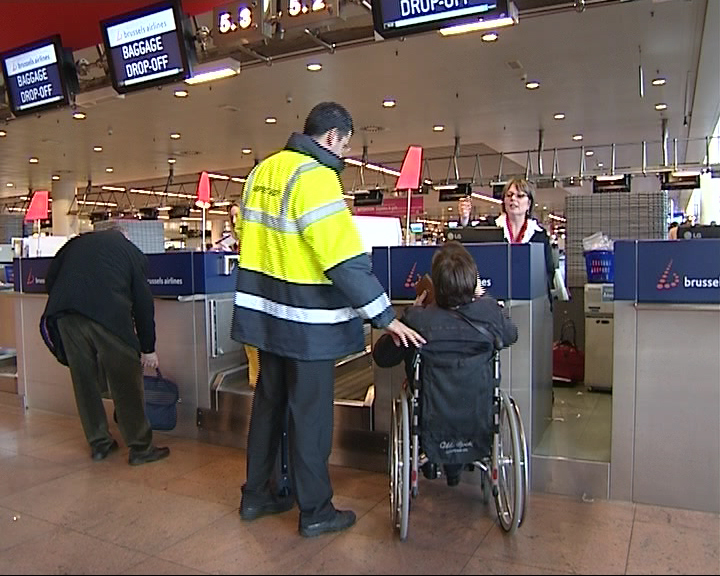Irrespective of your disability, you have as much the right to travel as anybody else. This means that airline companies have a legal obligation to make sure that they are able to assist you in case of IMPAIRMENT.
Therefore, whatever the reason of your reduced mobility (no matter if it is a long-term disability or merely a short-term injury) you have the right to receive help that is by all means FREE OF CHARGE. For example, all the European airports provide such help on leaving, arrival as well as for the duration of transit.
Nevertheless, the wisest plan is to try to get through the airline company before your voyage and make sure they are readily available to provide you with any type of assistance you may need. Actually, we strongly advise you to call them beforehand, as you are not bothering anyone.
The mere fact that only around 40% of passengers inform the airlines with regard to their assistance needs before travelling is a major issue for most of the airports and air carriers in their attempt to offer support. What is more, no company has the right to deny your boarding because of your reduced mobility. They may only so, if the plane is simply too small or for security reasons.
You should however be aware that the airline companies are not compelled to offer you help with eating or taking medication during a flight. In case you need such help, than you should know that most of the airlines may ask you to be accompanied by somebody else who can take care of you properly. In this case, you may want to inform the company that you are travelling with an assistant, as he or she may be able to buy a reduced price ticket.
Your rights as a passenger with reduced mobility in Europe
The European Commission published the guidelines explaining the RIGHTS OF DISABLED PASSENGERS AND PEOPLE WITH REDUCED MOBILITY when they travel by air. These guidelines were made public prior to the 2012 Olympics which took place in London in the summer of 2012. Their main aim was to assist as many people with reduced mobility when travelling by plane.
To put it in a nutshell the guidelines provide the following:
- Available help and assistance service points.
- Help in reaching to check-in point as well as all through the check-in procedure and your entire route throughout the airport.
- Assistance for getting on and off the airplane.
- Support with baggage.
- The airline should make all sensible efforts to permit your travelling assistant sit next to you.
- Carry your medical equipment free of charge (two items the most).
- Travel with an assistance dog. In UK, for example, there is a Pet Travel Scheme (PETS) which helps travellers avoid extended periods of quarantine when they return to the UK. Of course that any dog, just like any pet travelling by air, must be micro chipped, vaccinated against rabies and have its own passport.
All in all, if you somewhat happen to encounter any problems getting help while travelling by air, you need to notify the airline as soon as possible. In case you do not like the answer the give you, you may get in touch with the national enforcement body representing the country where it all happened.
Your rights as a passenger with reduced mobility in USA
In so far as US are concerned, the majority of the airline companies offer support for the people with disabilities. For example, if their disability does not allow them to walk freely throughout the airport, the companies will help them with a wheelchair and wheelchair attendant. However, this type of service is only provided by companies and not by Transport and Security Administration, the agency that regulates air travel in US.
Furthermore, if someone needs a WALKING STICK or any other type mobility aid, that particular person will be assisted by the airport personnel depending on his or her stage of impairment. It is up to the travellers to inform the airline with regard to their disability.
TSA advises passengers to use a Notification Card which will let the airport staff know that they are one of the persons with reduced mobility. Nonetheless, the mere fact that a traveller will show this sort of card or any other medical certificate, does not mean that he or she will be able to skip the screening procedure.
In general, the airline travellers will be screened by means of imaging technology only if they are able to stand alone motionless with their arms above their heads for 5 to 7 seconds. Passengers may equally be screened with walk-through metal detectors only if they are able to walk without the support of another person.
In case neither of these two options is possible, the traveller will be screened by means of a methodical pat-down procedure. Furthermore, the walker, cane, or other device ought to be X-ray screened; in case the traveller may not be separated from the walking aid, it has to be examined by an officer.
All in all, the United States TSA decided to allow the following items all the way through the security checkpoints:
• Casts
• Crutches
• Wheelchairs
• Support braces
• Service animals
• Ostomy supplies
• Orthopedic shoes
• Prosthetic devices
• Support appliances
• Baby apnea monitors
• Augmentation devices
• Exterior medical devices
• Assistive/adaptive equipment
• CPAP machines & respirators
• Canes
• Walkers
• Scooters
• Hearing aids
• Slate and stylus
• Cochlear implants
• Braille note takers
• Tools for prosthetic devices
• Personal supplemental oxygen
• CO2 personal oxygen concentrators
• Medications and associated supplies
• Tools for wheelchair disassembly/reassembly
• All diabetes related medication, equipment, and supplies
• Any other disability-related equipment and associated supplies
Last but not least, the TSA has dedicated special sections that address quite a comprehensive number of situations.

 En
En Es
Es Fr
Fr











